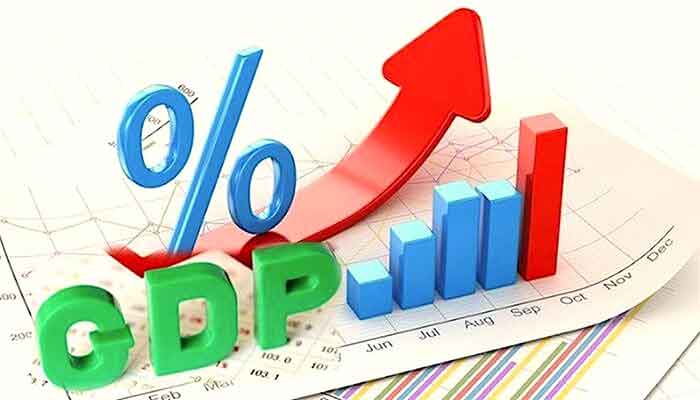There is a positive believe that Nigeria’s Gross Domestic Product (GDP) can grow up to $1 trillion within the next 10 years.

An oil and gas expert made this disclosure at the Doing Business in Nigeria Conference (DBNC).
The DBNC is an avenue where business professionals and business enthusiasts meet to share ideas.
While speaking on the topic, ‘Diversification of the Nigerian Economy’, the Chairman, AA Holdings, Co-founder and Pioneer CEO of Platform Petroleum Limited, Austin Avuru, made the statement.
Avuru noted that the right infrastructure, enabling environment, and regulations are not properly utilised in Nigeria, hence the low GDP.
Identifying the key economic sectors as Agriculture, Mines, Industry, Commerce, and Services.
Read Also: APC Opens Up On ‘Removal Of South-South Zonal Executives’
He said the government had failed at all levels to enable the private sector, which is good at business, to thrive in these sectors.
Exploits In Agriculture
In the agriculture sector, he said every state in Nigeria had the potential for massive contribution to Agriculture production.
According to him there are different segments in agriculture that could be explored.
Cassava, rubber, fisheries, palm produce, cocoa and kola nuts in the South, livestock, groundnuts, cashew nuts, gum Arabic, yams, tomatoes, and pepper in the North.
For him, the key enablers are infrastructure (rail and road transport), security, technology, machinery and input seeds.
Others are fertiliser for mechanised farming and optimal fields.
To put Nigeria’s potential into perspective, he compared exploits by other nations.
According to him, in 2021, Ethiopia earned $235 million from Flower exports and Nigeria earned $420M from Cashew Nut exports.
Regarding Oil and Gas, Avuru said Nigeria should be producing 3 million barrels of crude oil (mmbo) and 10 billion cubic feet of gas (bcfg) per day.
“We should be operating at a cost of less than $7.0 per Barrels of Oil Equivalent (BOE).
“The current production is less than half of capacity at a cost of 300%,” he said.
Also, in his opinion, the key Enablers to optimal oil and gas production are Security and Effective Regulation.
Industry Exploits
The industry includes Manufacturing, Processing, Assembly Plants, Refineries and Petrochemical.
Avuru highlighted that poor power and transportation infrastructure make Nigeria’s industrial sector largely uncompetitive.
Commerce
He added that commerce, which is a large contributor to the GDP in Nigeria, is hampered by poor transport infrastructure, and limited e-commerce penetration.
Services
Services, which include ICT, banking, entertainment, transportation, etc., is the largest contributor to GDP in Nigeria, but are largely hampered by poor power and transportation infrastructure, according to Avuru.
Needed Diversification
Nigeria has continued to rely on the oil and gas sector for a large portion of its revenue. But there is a potential to develop other sectors and earn huge revenue from them.
As a result, Avuru emphasised that the contribution of oil and gas to Nigeria’s GDP had fallen from 12% to 4.5%.
He believes that diversification should start from the oil & gas industry.
“Value addition through refining, petrochemicals, fertiliser, and domestic gas supply would increase revenue through increased production.
Increased revenue needed to fund critical enablers will be generated from the oil industry,” he said.
You Can Also Read: See What FG Advises Onion Farmers On Post-harvest Losses
He added that the provision of critical enablers will deliver an educated workforce, a healthy workforce, adequate and efficient power.
Also, it will deliver efficient transport infrastructure, security of lives and property, stated.
Avuru summised that effective regulation of the private sector, will lead to a massive expansion of all productive sectors, with double-digit GDP growth.

